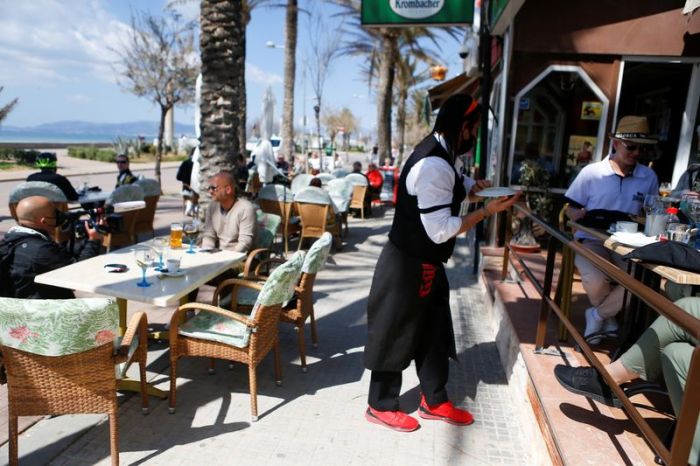(Reuters) – Jury selection resumed on Monday in the murder trial of Derek Chauvin, the former Minneapolis police officer charged in the death of George Floyd last year in a violent arrest that spurred nationwide protests against racism.
Twelve jurors and one alternate have been seated since the trial began two weeks ago: five white women, two white men, three Black men, one Black woman and two multiracial women, according to court records.
A second alternate was seated on Monday morning: a white woman in her 20s who said she was accustomed to navigating conflicts in her job as a social worker.
Hennepin County District Judge Peter Cahill said he wants to find at least one more alternate before opening arguments, which are scheduled to begin next Monday, on March 29. He has promised jurors anonymity for the duration of the trial.
A bystander’s video showed Chauvin, who is white, with his knee on the neck of Floyd, a 46-year-old Black man who begged for his life during the arrest on May 25, 2020.
Cahill and the lawyers in the case have questioned more than 60 potential jurors in court to weigh their impartiality as Chauvin, dressed in a suit and tie, took extensive notes on a yellow legal pad.
Potential jurors all completed an unusually detailed 16-page questionnaire last year asking them about their knowledge of the arrest and their opinions of Chauvin, policing, the media and the Black Lives Matter movement for racial justice.
All of them have said they were aware of video. Almost all said they had seen at least some of the footage, which sparked global protests against police brutality and racism.
Chauvin has pleaded not guilty to charges of second-degree murder, third-degree murder and second-degree manslaughter. He faces up to 40 years in prison if convicted on the most serious charge.
(Reporting by Jonathan Allen; Editing by Cynthia Osterman and Dan Grebler)




























